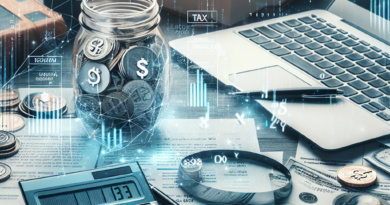Prescription of unpaid invoices, by when the money can be recovered
Invoices, representing credits, are also subject to prescription.
This means that after a certain period of time they can no longer be claimed by the creditor, provided that the limitation period has not been interrupted by requests for payment.
The limitation period, in fact, starts again from zero for each interruptive act.
Knowing the statute of limitations for invoices is essential both for debtors, so as to be able to oppose the statute of limitations against requests for payment received after the deadlines (therefore not necessarily payable), but above all for professionals, who must know by what time to intervene to recover your money.
Please note, however, that there is no single limitation period for invoices.
The timing in fact depends on that of the credits represented, which in turn must be subject to various regulations.
Let's see when unpaid invoices are prescribed for the different types.
Prescription of unpaid invoices Invoices for the purchase of goods or services Invoices for periodic services Invoices for professional services Invoices from the real estate agent Invoices for transport Invoices for schools and private gyms Invoices from maintenance companies and construction works Invoices for hotels and B&Bs How recover money after issuing an invoice Invoices for the purchase of goods or services Referring to general legislation, the statute of limitations for credits deriving from contractual obligations is ten years.
This means that invoices issued for the purchase of goods and services become statute-barred 10 years after their issue or the last payment request notified.
This broad category includes the majority of daily purchases, such as the purchase of household appliances, cars, beauty treatments and so on.
Invoices for periodic services Invoices for periodic services expire in just 5 years, calculated individually for each payment due.
Periodic services include all those that must be paid on an annual or shorter basis, including rent and telephone bills.
An exception is made for electricity and gas bills, which have a two-year prescription.
Invoices for professional services Invoices issued by professionals become statute-barred after 3 years.
This term therefore applies to invoices from the doctor, lawyer and notary.
Technically, we are talking about a presumptive prescription, with which the service is considered paid after the passage of a certain period of time – in this case 3 years – without prejudice to the possibility of proving the contrary.
Invoices from the real estate agent Invoices issued by the real estate agent (for example for intermediation in a sales or rental contract) are barred within 1 year.
read also Invoice, when it must be paid by: guide to payment terms Invoices for transport Even with regards to transport and shipments, the limitation period for invoices is only 1 year.
Invoices for private schools and gyms Invoices issued by private schools and gyms expire in 1 year.
Invoices from maintenance and building work companies Invoices issued by maintenance and repair companies for building work are time-barred for 1 year and any dispute with the invoice (due to delays in completing the work, errors and so on) must be forwarded to the registered office no later than 8 days from its issue.
read also What risks those who agree to pay without an invoice? Invoices for hotels and B&Bs Invoices issued by hotels, B&Bs (but also hostels and guest houses) expire in an exceptionally short period: only 6 months.
How to recover money after issuing an invoice To interrupt the invoice's prescription it is necessary to request payment (with a reminder or a warning) from the debtor with a registered letter with return receipt or certified e-mail.
The use of these means is essential to certify the date of notification of the communication, but also to exclude doubts about its receipt by the customer.
From each interruptive act the prescription restarts from scratch.
If, despite requests, the debtor does not pay the invoice, to recover the money it is necessary to take legal action, contacting the justice of the peace (for credits of less than 5,000 euros) or the ordinary court, in order to obtain an injunction and possibly initiate a collection procedure.
read also Injunctive decree without lawyer, when and how to do it




